- Cirque du Soleil’s “Crystal” at Fishers Event Center, a photo preview
- The Gatlin Brothers at Brown Country Music Center
- The Black Keys will perform at Innings Festival, Feb 21.
- Gary Clark Jr. will rock the Innings Festival 2025
- Fall Out Boy to appear at Innings Festival in February
- Kris Kristofferson passes away at 88
One-on-One With Ex-Eagles Guitarist Don Felder (Part 1)
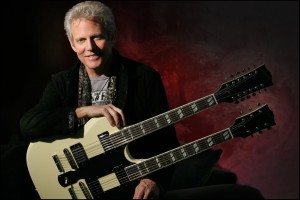 Nothing inspires an artist quite like the dissolution of a relationship. The process of grieving is often like mourning a death, in that a person who was once an integral part of your life is no longer present physically or emotionally. This experience often inspires a lot of inward thought and evaluation, and an artist in this mode usually ends up leaning on his/her art for an outward expression of this personal introspection. Many lessons are learned as someone is forced to move forward in the face of much struggle and pain.
Nothing inspires an artist quite like the dissolution of a relationship. The process of grieving is often like mourning a death, in that a person who was once an integral part of your life is no longer present physically or emotionally. This experience often inspires a lot of inward thought and evaluation, and an artist in this mode usually ends up leaning on his/her art for an outward expression of this personal introspection. Many lessons are learned as someone is forced to move forward in the face of much struggle and pain.
In 2001, Eagles guitarist Don Felder found himself grappling with a double shot of relationship grief. After a long feud over contractual breaches, Felder received his walking papers from a band in which he played a major role as lead guitarist and co-writer. At the same time, his marriage of 29 years was in ruins.
In his 2008 autobiography Heaven and Hell: My Life in the Eagles, Felder honestly and vividly depicts his steady rise from humble origins in Gainesville, Florida to superstardom all over the world. He also documents his emotional struggles during the ‘90s as a figurative cold war developed in the Eagles camp with members traveling separately while on tour for Hell Freezes Over, only convening to perform. With Henley and Frey reneging on an equal-cut ‘70s band contract for the ‘90s reunion, Felder was forced to either accept less money than the front men or fight it in court. He chose the latter, and it eventually led to his termination. Even though he did eventually receive a large sum of money in an out-of-court settlement, the real tragedy remains that his relationship with the Eagles is permanently severed. In this way, everyone grieves for the loss of this celebrated and fruitful union that created such vital songs and albums during the mid-70s.
Now that original guitarist Bernie Leadon is reuniting with the Eagles this summer for an abbreviated mid-show set, distant hope remains that eventually Felder and his band mates may share a stage again. However, with direct communication non-existent between Felder and Frey since the late ‘90s, the chance of Felder rejoining the fold is unlikely at this point unless Frey sees a money opportunity that supersedes the lingering bitterness.
Felder’s triumph in the face of overwhelming personal and professional struggle is reflected in the songs on Road to Forever, his second solo album. With the songs either written or co-written by Felder, the listener gets an inside view on how one of the greatest guitarists in the history of rock and roll climbed out of the ashes stronger than ever.
Don called me earlier this week from his hotel room in San Deigo. I have to preface this interview by saying that Don Felder is one of the nicest people I’ve ever talked to in general, let alone rock stars or musicians. He is just a genuine, open, friendly guy. We chatted at great length about his early days in Florida learning slide guitar from Duane Allman, teaching Tom Petty guitar lessons, and playing in bands with Bernie Leadon and Stephen Stills. We also talked about his experiences in the Eagles and the struggles he overcame after leaving that band in 2001. With his newly released solo album Road to Forever, Don Felder is back in the limelight as a guitarist, recording artist and songwriter. Here is Part 1 of our conversation. (Part 2 will be posted next week.)
Chris: I’d like to talk about your new album, Road to Forever. It’s probably the pinnacle of your creative life, wouldn’t you agree?
Don: Well, yeah…I mean as far as a solo project goes it’s probably the biggest creation of my musical life. But I think the songs that I made with the Eagles, like “Hotel California” and that whole series of work we did really has had a monster impact globally, beyond what any of us ever dreamed to be possible. But it was a different experience making a solo record. It was a very liberating experience having the handcuffs taken off to be able to write and record literally anything I wrote and wanted to do. With the Eagles, I had to write for a specific cast of characters. I knew how everybody played. I knew their vocal ranges. I knew the drum tracks couldn’t be too complicated because Don Henley would have play them and sing at the same time. I knew the kind of flavor and style of that band. So it’s like writing for two different projects, really. Being able to use a lot of my friends on this new record – Crosby, Stills & Nash, Steve Lukather and the guys from Toto, Tommy Shaw – was just a really fun, refreshing experience. There was no drama, no friction, and no tension. We were just having fun making a record.
Chris: Yes, I noticed on your musician credits that Steve Lukather and some of the Toto guys were on there. Those musicians played on a lot of records, especially in that post-Eagles early ’80s period.
Don: Well, you know, it was funny. Originally I was going to use a producer on my record named Greg Ladanyi, who had worked on a lot of really amazing records from that era by Jackson Browne, Warren Zevon…I think he even did one of Henley’s early records. Just a great engineer and a great producer. He and I spent about three months playing golf, having lunch, listening to songs, and talking about where we would record and what songs we would record. Anyway, he had an artist in Greece that he called his “Greek Madonna.” He flew over there to see her play on this big stadium tour, and he fell off the back of one of those high stadium stages and actually passed away. This was a week we before were supposed to start on this project. So he had laid out this entire plan of where we would record, what songs we were going to do, and the players we were going to use. He had just pretty much drawn up the whole roadmap and then literally checked out.
So I talked to this other guy named Robin DiMaggio – who ended up co-producing my record – whom Greg had booked to work with us before he died. We said, “You know, let’s take three or four of these songs into the studio and kind of follow Greg’s direction. Let’s pull in the people he suggested like Lukather, [bassist] Leland Sklar, and some of the guys from Toto. We’ll see how this works.” We just had so much fun doing it, and the end results of those initial sessions were very inspiring. So I said, “You know, Greg laid out a really good plan for us.” As a matter of fact, the song “Road to Forever,” the title song for the record, started back when my father passed away. I started writing that song as a kid of really pretty acoustic guitar ballad. I wanted to have it translated into something much more powerful and energetic. So I rearranged it, I used all the people that Greg had suggested, and put that song on the album together in Greg’s honor. At the very end of that song, I created what I envisioned and called “the pool of souls.” If you could stick your head up into the clouds in heaven, and hear the millions of souls that had gone before us, swirling around and all their voices going on…I wanted to recreate that effect at the very end of the record. Like you had reached, you know, the end of the road. I went online and found this video of Greg, at a producer/engineer conference, discussing the difference between analog and digital recording. And at the very end of that speech he says, “And that’s the difference between the two worlds.” So I took Greg’s audio of him saying that, and put it right at the end of the “pool of souls.” Even though he wasn’t a part of the record, we followed his road map. And we put that part on the record in his honor.
Chris: I’m really glad you explained that to me because I was wondering if that last phrase in the pool of voices was intentional. I also found the song interesting in that you and Lukather are both strong lead players with very signature styles, but you blend together so well; it doesn’t sound like two competing guitars. Was that the approach you took when recording that song?
Don: Absolutely. You know…the one thing that we developed in the Eagles – Joe and I – was knowing when to step forward and play, and when to step back and let someone else have their space. That was kind of the approach doing it with Steve. I have to say, Steve’s one of the funniest guys…literally from the time he walks in until the time he leaves, you’re laughing to the point when your cheeks hurt from smiling so much. He’s a great guy, a great player, and a very uplifting soul in the studio. It was just a lot of fun to be able to sit down and put together that little ending and those two guitar parts. I’ve already started writing some song ideas for this next record I’m working on, and I plan on including a lot more outside guitar players. I just saw Eddie Van Halen at an event, and I think he’s going to come in and play on it. Frampton will come in and play on it; we’ll get Lukather back. I think it’ll be fun to have some other players to play off to on this next record.
Chris: That’s great! It seems that a lot of artists emphasize collaborations these days. Everyone seems to be more laid back about it all.
Don: That’s what it’s all about! I’m just having fun at this point in my life. You know, I like to go out on stage with different guitar players, hit the studio with different, inspiring musicians, and reach beyond what I’m used to doing. You need to leave your comfort zone, throw yourself back off the cliff, and hopefully land on your feet. That’s the challenge of being a creative artist.
Chris: I wanted to talk about when you first joined the Eagles. I noticed a distinct difference in the overall sound of the band before you joined and after. The song “One of These Nights” (from the album of the same name) seems to be the defining moment that marked that change, even though you had recorded a few tracks on the prior album (On the Border). When you first joined the band, did you realize that your guitar style would shoot the band into a whole new stratosphere?
Don: Well, you know, I had known the band since it started. As a matter of fact, since before it started. Bernie Leadon and I were in a high school band for about three years. We had two bands, we played Country music and Bluegrass music; Bernie played banjo, I played flat-top guitar. During the week we go do these little Bluegrass shows in different places around Gainesville. He kept trying to convince me – even though I was living in Florida, later in New York, and then in Boston – to live in California. He said, “The music is out in L.A.; you need to move to L.A.” So every time Bernie would come through either New York with the Flying Burrito Brothers, or come through Boston with the Eagles and whatnot, I would go down to see him and meet the people from whatever band he was playing with. So I met the Eagles backstage in Boston in ’72 and jammed with Bernie backstage. Don and Glenn saw that and really thought that it would be a great addition to the band. They didn’t say anything at the time to me, but when I had moved to L.A. they called me in to do some slide work on a song called “Good Day in Hell” [from the 1974 album, On The Border]. I’d been hanging out and jamming with them at sound checks and rehearsals, and just playing with my friends. You know?
Then I got a call the day after the session to join the band. Actually Glenn Frey called me and asked if I’d like to join the band. I was playing with Crosby-Nash at the time, and my wife was pregnant with our first child. It was 1974, and I was making about $1500 a week – which is about $15,000 dollars a week today. So I had a really difficult decision to make about joining the Eagles, with this hugely pregnant woman sleeping in the room with me. Do I leave this safe and secure paycheck, and step into this band that I had known from Bernie? They were constantly fighting, and everyday it seemed like somebody was quitting. I didn’t know if it was going to blow up in a week or a month. I went and had a conversation with Graham Nash, and asked him his advice. He said, “Don you should join that band. That’s your best shot in this career. To make something of yourself other than just a side man.” So I took Graham’s advice and humbly bowed out of the Crosby-Nash show, and joined the Eagles. Sure enough, the first day there it was just nothing but explosions in the studio. I mean doors slamming and people stomping out. I went, “Oh my god! I’ve made the worst mistake in my life!” [We both laugh.] Once we started playing and recording these other songs, like “Already Gone” and “On the Border,” and finally getting on the road…there was a big uplift. There was a shift from being a country rock band into being more of an AM rock and roll band.
Chris: Lead guitar players definitely have a signature playing style. Your style seems to have an unpredictability element. When I listen to your solo in “Hotel California,” there’s nothing predictable about it; yet it flows so well. And I can hear many different influences in there, from blues to flamenco. Can you identify any particular influences that led you to cultivating that sound and approach?
Don: Sure. Well, I grew up in Florida. One of my biggest influences in Florida came from Hispanic music. Blues and Hispanic music. If you listen to Stephen Stills’ “Love the One You’re With,” there are a lot of Latin-based rhythms there. We were in bands together as you probably know, and that was part of our influence. Bernie really helped me develop my Bluegrass skills. Duane Allman actually taught me how to play slide guitar; he was the first guy I’d ever seen play electric slide guitar. I’ve seen Blues artists play acoustic slide guitar. But the first time I saw Duane we were in battle of the bands together, and we had known each other for years. When I saw him do that I said, “You have to show me how to do that.” He sat me down and showed me the tuning and the basic slide moves. I never tried to emulate him or copy him, but he gave me the fundamentals for it. So a lot of my influences were more Southern Rock. I taught Tom Petty guitar when he was in Gainesville. When I moved to New York I studied Jazz and made a Jazz-fusion record up there. So I had a lot of different cultural influences.
The one thing that I think is really most defining for me is that my father loved horn bands. He would listen to Benny Goodman or the Tommy Dorsey Band, so I grew up in house where I was listening to horn phrasing. If you listen to a guy playing a horn, like a sax…he can only play a song so long before he has to stop, take a pause, and continue. And so the phrasing of horn sections, or horn players, was just engrained in me. When you look at the solo in “One of These Nights,” it’s really an alto sax solo. I envisioned what an alto sax player would play. And that’s very much like something Dave Sanborn would’ve played. But it’s on an electric guitar. It’s a simpler, more melodic, memorable guitar line than just somebody shredding. You know, you listen to some people shred, and you can’t hum or sing a simple solo or note they played. If it goes by so quickly, it’s not memorable. I think it was Benjamin Franklin that said, “If you want to teach somebody to remember something, set it to a simple melody.” Myles Davis has that same approach to writing his solos. He can say more in three or five notes than Kenny G can say in an hour. So I adopted the horn phrasing approach to solos: they’re simple, yet they have some unique twists to them. But if you listen to almost all of my solos, it’s kind of how a horn player would play it.
Chris: I have a technical question relating to the types of guitars you used on the Eagles records, particularly, Hotel California. There was an idea that you were sort of the Les Paul guy, and Joe was the Telecaster guy. Was there a Stratocaster happening anywhere in there? In photos from that period I’ve seen you with a Strat probably 30% of the time and a Les Paul the other 70% of the time.
[youtube id=”MSvSsNSuVtk” width=”620″ height=”360″]
Don: I did not play a Stratocaster on Hotel California. The only time I played Stratocaster on Hotel California was when I was originally writing all the music for it in my home studio. Joe had just joined the band, and I wanted to write the end guitar parts for “Hotel California” that were a trade-off – much like we did with Luke on “Road to Forever.” The idea was that I would play a line and then step back and let Joe play. So for that demo I played my Les Paul for my parts, and then I switched to a Strat plugged into a different amp to play what Joe would play. The finished product is pretty much exactly like my demo, with the exception of a few quirky little licks that only Joe can come up with. So we’d gone to the studio in Miami to record that, and I’d thought that demo I’d made was just like a reference. Joe and I would sit up on two stools of the control room, plug in two guitars, start the tape machine, I would play a line, Joe would play a line, I’d play a line, and we’d just make this stuff up, right? And Henley came walking into the control room and said, “Stop! What are you doing? That’s not right!” I said, “What do you mean, ‘that’s not right?’” He said, “That’s not like the demo!” He had been listening to my old demo for about a year, and I said, “Well I don’t even know what that was; that was a year ago. I have no idea what I made up on that demo.” So I had to call my housekeeper in Los Angeles, have her find the cassette in my studio, put it in a (ghetto) blaster, play it with us holding the phone up to the blaster. I had to sit down and learn what I’d just made up off the cuff, exactly the way I’d done it on that demo. It was crazy. As a matter of fact I still have that original demo, I just transferred it to digital about nine months ago. I was listening to it and going, “That’s almost exactly what it turned out to be.”
(Stay tuned for Part 2 of 2 next week!)
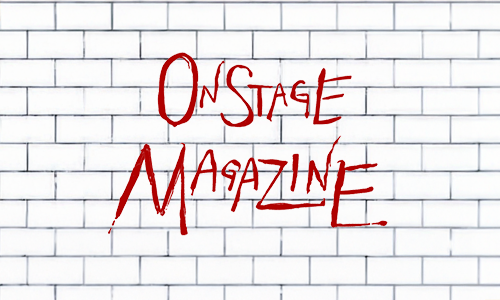
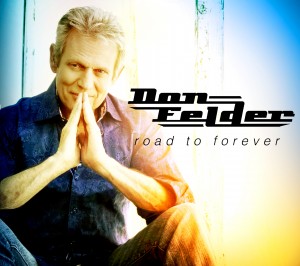
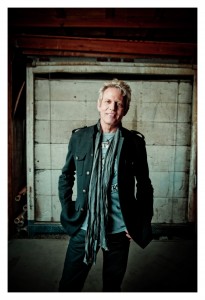
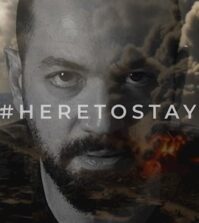
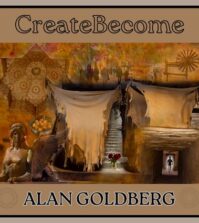
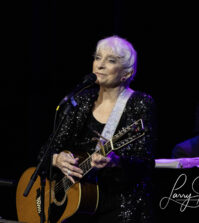
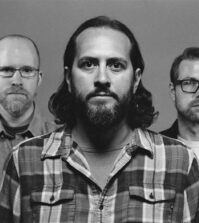

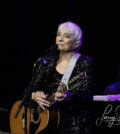
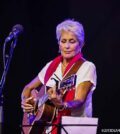
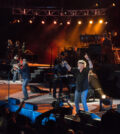
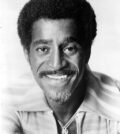
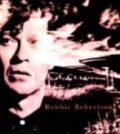
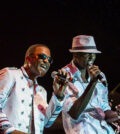



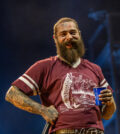
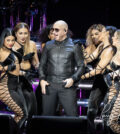
Pingback: WIN tickets to Styx, REO, and Don Felder - OnStage Magazine.com
Pingback: Chris LeDrew: The Nashville Album – OnStage Magazine.com
Pingback: One-on-One With Former Eagles Guitarist Don Felder (Part 2) - OnStage Magazine.com - OnStage Magazine.com